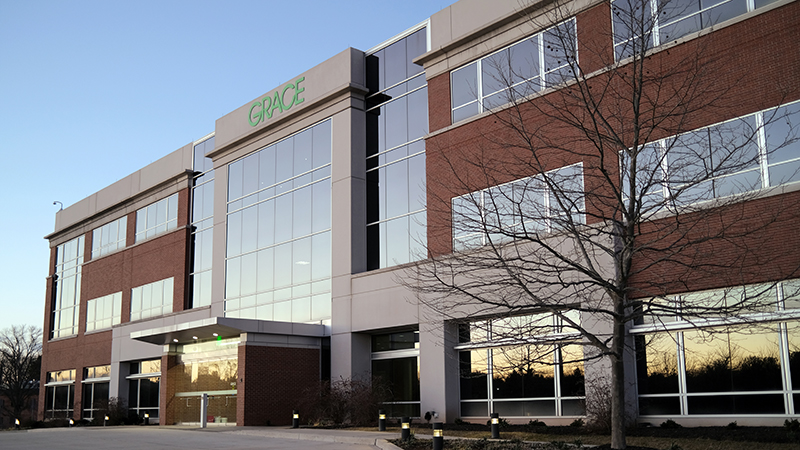Grace in Columbia, Maryland

Grace is an active member of the communities in which we are located. With a goal to improve the community, we contribute to local economies through sustainable actions including jobs, education initiatives, contributions, and charitable donations.
Contacts
Address:
W. R. Grace & Co.
7500 Grace Drive
Columbia, MD 21044
Phone: 410.531.4000
Key Facts
Number of employees: ~600
Principle Activity: Office, R&D, Analytical Services
Key Products: High-performance specialty catalysts and materials.
Applications: Catalysts, chemical processing, food and beverage, general industrial, coatings and inks, personal care, pharma, and plastics and rubber.
Community Relations
- United Way
- Salvation Army
- American Heart Association Heart Walk
- Marian House
- Maryland STEM Festival
- Girl Scouts of Central Maryland
- Howard County Conservancy
- Howard Community College
- Columbia Festival of Arts
- Franciscan Center
- Howard Count Heart Ball